Insights from Global South representatives
video
The Second Global South Think Tanks Dialogue has successfully concluded, and the echoes of ideas are still resonating. During the dialogue event, reporters from inJiangsu conducted in-depth interviews with think tank and political party representatives from various countries, listening to their thoughts on how the newly established Global South Think Tanks Alliance can be effective and their expectations for future cooperation with China.
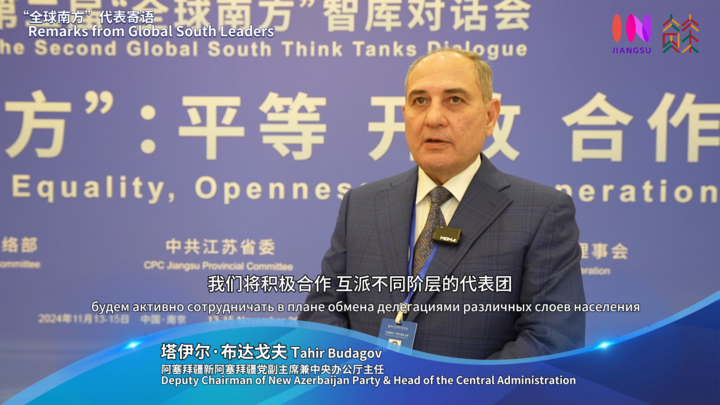
This July, China and Azerbaijan have upgraded bilateral relations to strategic partnership, based not only on the needs of both countries, but also taking into account the development of relations aimed at strengthening peace and stability in the region overall. Tahir Budagov, Deputy Chairman of New Azerbaijan Party & Head of the Central Administration told inJiangsu that the Communist Party of China and the New Azerbaijan Party signed a memorandum of cooperation on November 13. Both sideswill actively promote youth policy, engage in cooperation regarding the exchange of delegations from various sectors of society, and implement significant initiatives in the fields of education, culture, and sports.
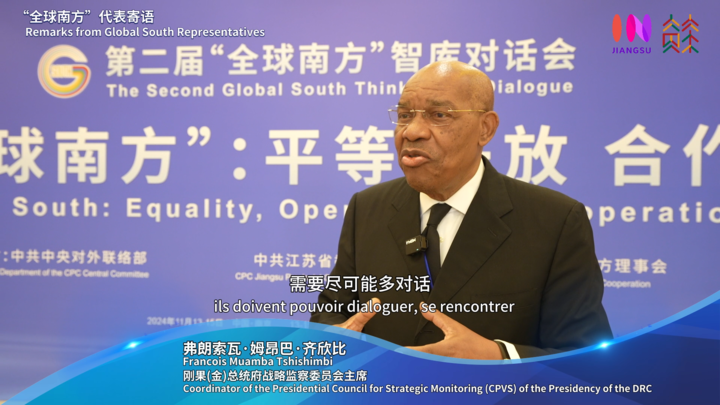
Francois Muamba Tshishimbi, Coordinator of the Presidential Council for Strategic Monitoring (CPVS) of the Presidency of the DRC, stated that the best way for think tanks in the Global South to be effective is exactly what is happening: they must be able to dialogue and meet as often as possible. He believes that the Global South Think Tanks Alliance can create the conditions for dialogue, meetings, and exchanges.
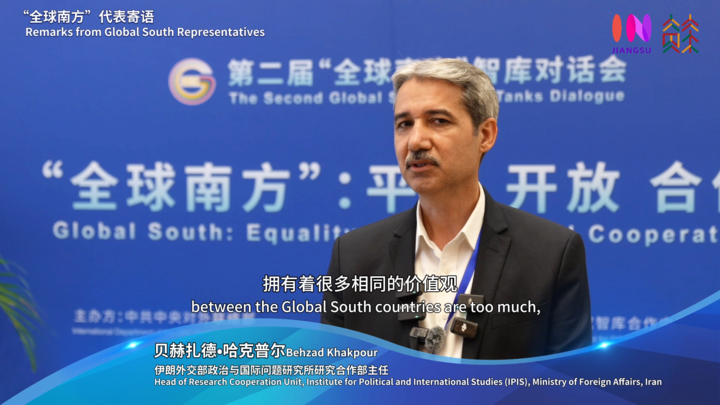
"This is the right moment in order to realize the long-lasting aspiration of Global South. And we believe that China could play a very crucial role, make a collective leadership for Global South," said Behzad Khakpour, Head of Research Cooperation Unit at the Institute for Political and International Studies (IPIS), Ministry of Foreign Affairs of Iran.
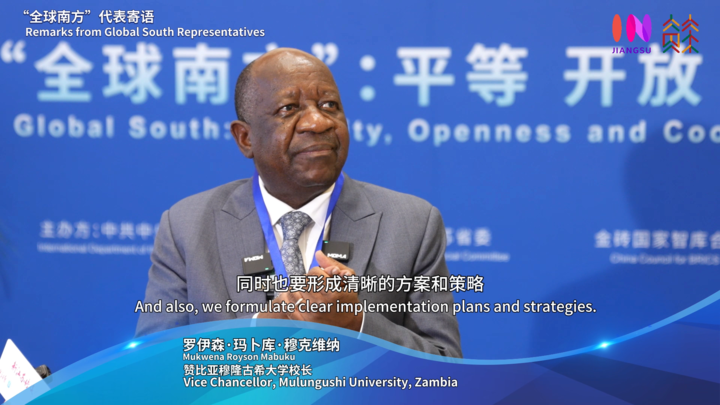
"It's one thing to agree to an alliance and another thing to make it effective." Royson Mabuku Mukwena, Vice Chancellor of Mulungushi University of Zambia told inJiangsu. "It's a question of strengthening this platform with clear objectives. We need to have clear timelines on what we want to achieve. And also, we formulate clear implementation plans and strategies."
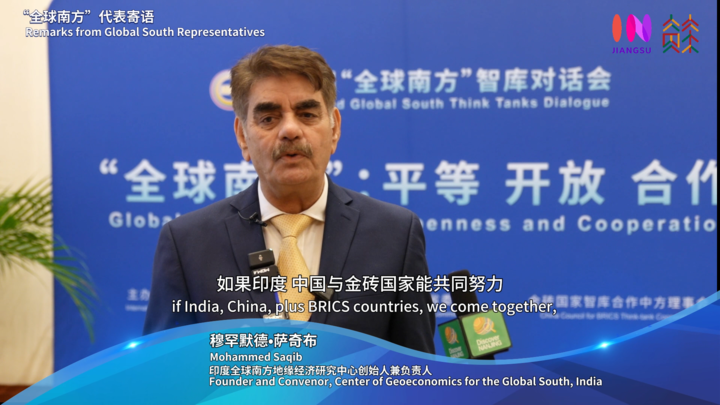
Mohammed Saqib, Founder and Convenor of the Center of Geoeconomics for the Global South in India, noted "If India, China, plus BRICS countries, we come together, we can solve all the problems for Global South within ourselves."